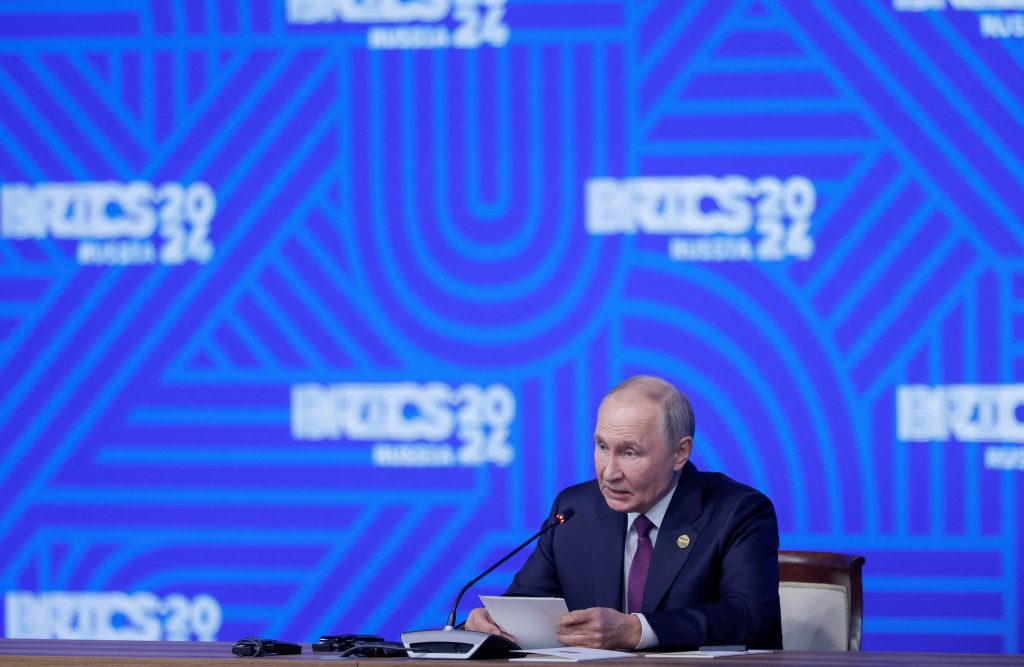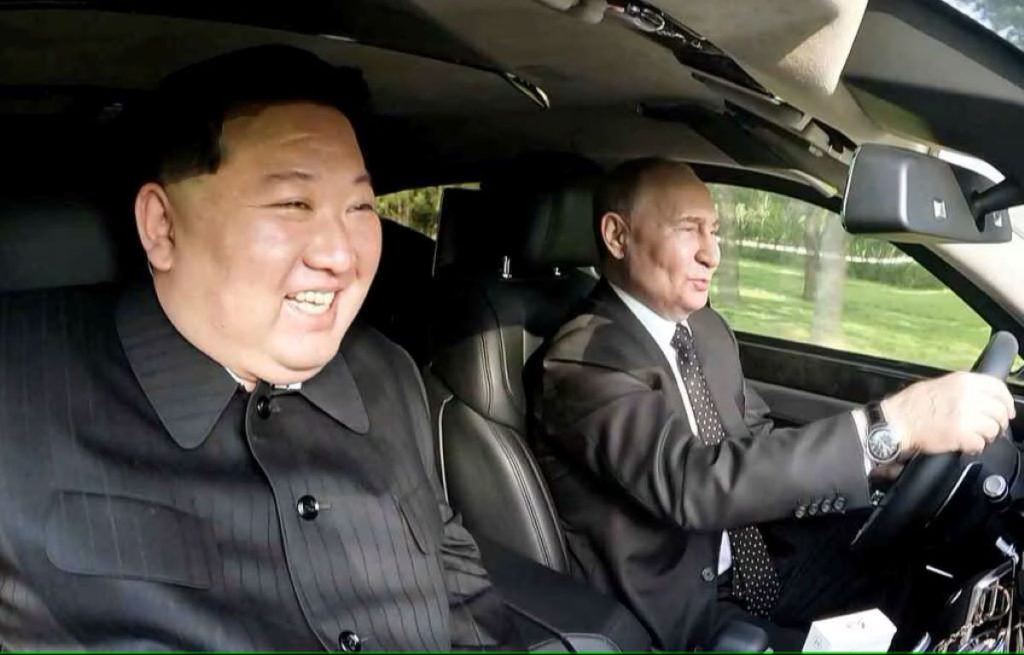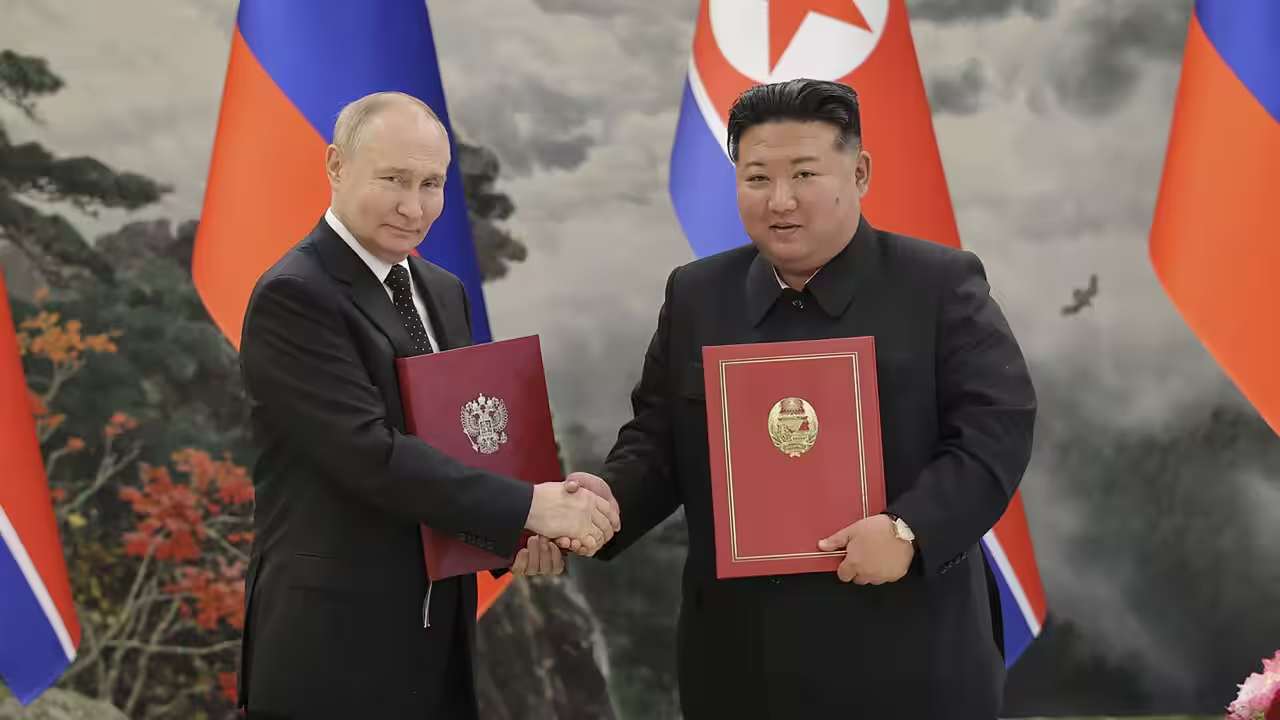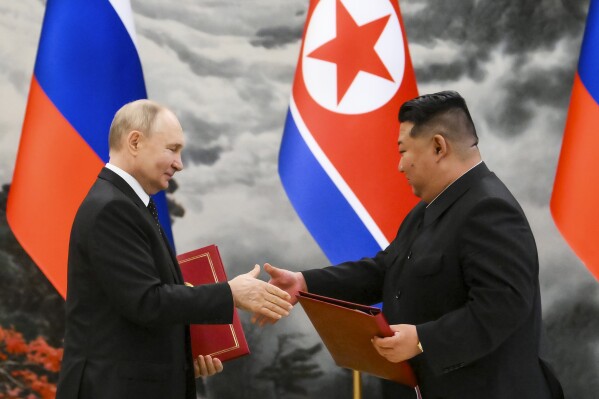Russian President Vladimir Putin asserted on Friday that Russia has the sovereign right to decide if it would utilize North Korean troops in any of its military endeavors, including the ongoing conflict in Ukraine. The remarks come amid U.S. allegations, backed by evidence, that North Korea has sent around 3,000 troops to support Russian operations, with Ukrainian intelligence affirming that some North Korean soldiers trained in Russia have already been deployed to the Russian border region of Kursk, where Ukraine recently reclaimed Russian-occupied land. Moscow’s cooperation with Pyongyang has raised significant concerns in the West, as it could mark a substantial intensification of the Ukraine conflict by involving additional foreign military support for Russia.
In his statements, Putin emphasized that Russia’s defense decisions remain strictly within its jurisdiction, stating that the Kremlin alone would choose if and how North Korean assistance might be applied. Drawing comparisons to NATO’s support for Ukraine, Putin noted that the West has repeatedly asserted Ukraine’s right to secure its borders in the manner it chooses. Similarly, Putin argued that Russia’s approach to its own security—including the potential use of allied support from North Korea—should be viewed as a matter of Russian sovereignty. The Russian president insisted that Western powers would benefit from reassessing their stance on Ukraine, suggesting that their current approach only exacerbates tensions with Moscow.

The deepening ties between Russia and North Korea were formally recognized in June, when Putin and North Korean leader Kim Jong Un signed a comprehensive strategic partnership agreement. Article 4 of this agreement obliges either nation to offer immediate military support to the other if it finds itself in a state of war. This agreement lays the groundwork for a cooperative military alliance and could justify North Korean support in the Ukraine conflict as part of a mutual defense understanding. The document is one of several signs of increased diplomatic and military collaboration between Moscow and Pyongyang, with Kim Jong Un expressing strong support for Putin’s stance against Western influence.
The Russian government has not officially confirmed the U.S. claim that North Korean troops are now actively supporting Russian forces. However, Putin indicated that if Moscow decides to leverage North Korean assistance, it would be a sovereign choice, thereby sidestepping a direct denial of these claims. U.S. officials have condemned any military cooperation between Russia and North Korea, suggesting it risks destabilizing the region further. U.S. Secretary of State Antony Blinken has noted that any increased cooperation between Moscow and Pyongyang likely serves to circumvent the economic sanctions imposed on Russia, providing mutual benefits as Russia and North Korea face extensive sanctions from the West.
Russia’s relationship with North Korea represents one of several new diplomatic connections Moscow has sought as it faces significant international isolation. In recent years, Putin has expanded Russia’s partnerships with nations like Iran and China, looking to cultivate military and economic alternatives to Western alliances. The potential deployment of North Korean troops could signal Russia’s willingness to reinforce these ties, testing the limits of its alliances to counter NATO’s and the U.S.’s influence in the Ukraine conflict.

The situation on the Russian-Ukrainian border has seen increasing instability, with reports indicating that North Korean soldiers could be stationed in locations near recent Ukrainian advances. The Kursk region, where North Korean troops have allegedly been positioned, has experienced intense clashes in recent months. Ukrainian forces managed to take back several sections of Russian-controlled territory in August, a strategic gain that could further motivate Moscow to consider foreign reinforcements.
Amid these developments, Putin’s framing of North Korean assistance as an “internal matter” sends a message that Moscow does not recognize any constraints on its defensive partnerships, despite international opposition. Western officials worry that Russia’s use of North Korean support might signify an escalation that extends beyond Ukraine’s borders, with potential security implications for East Asia. North Korea’s involvement in the Ukraine war also raises concerns about the proliferation of Pyongyang’s military influence, as the country has limited engagements beyond its support for Russia and other isolated states.

The West’s response remains focused on condemnation and sanctions aimed at pressuring Russia to de-escalate the conflict. However, with the Kremlin pushing for an expanded military alliance with North Korea, some analysts warn that such punitive measures may have limited impact. North Korea, already a heavily sanctioned state, is unlikely to face additional repercussions that would deter its involvement. Putin’s rhetoric underscores the strategic decision Moscow has made to look beyond traditional diplomatic norms, embracing support from nations similarly distanced from Western influence. As Russia and North Korea deepen their partnership, the international community must confront the implications of this alignment, both in Ukraine and beyond.




